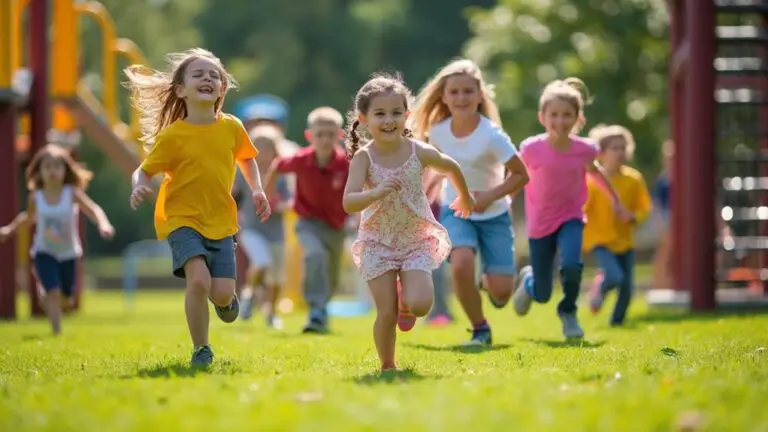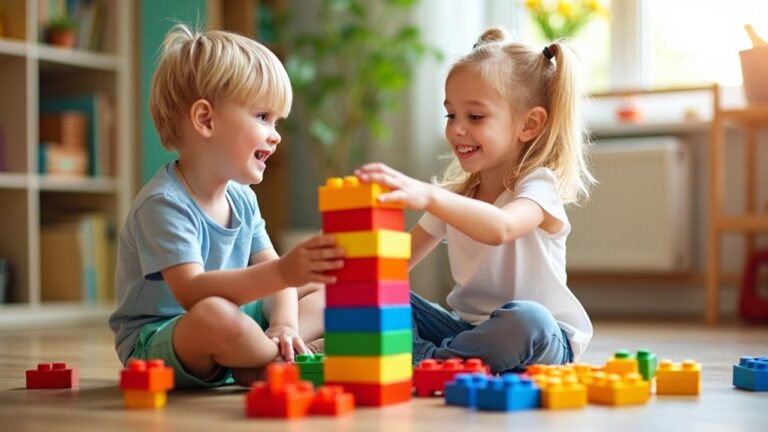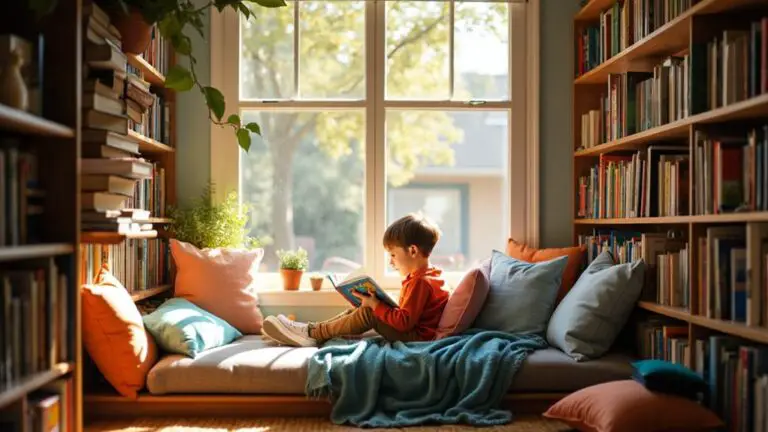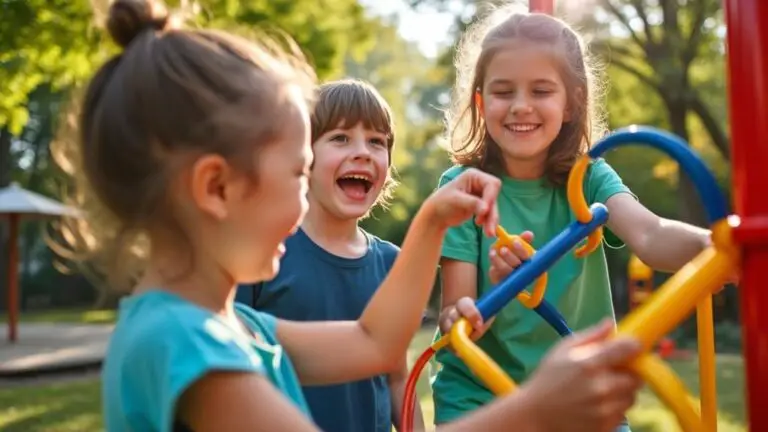The Role of Play in Child Development
As a child development specialist, I've witnessed firsthand the transformative power of play in young lives. It's not just about fun and games; play is a essential catalyst for emotional, social, and cognitive growth. I've seen shy children blossom through imaginative play and watched as complex problem-solving skills emerge during seemingly simple building activities. But there's more to the story than meets the eye. The types of play and the environments we create for children can greatly impact their development. So, what exactly makes play so important, and how can we harness its potential to shape the next generation?
Key Takeaways
- Play enhances emotional well-being by improving emotion regulation and anxiety management skills.
- Social skills are developed through play, promoting communication, cooperation, and conflict resolution abilities.
- Play contributes to academic success by fostering problem-solving and abstract thinking capabilities.
- Physical health is supported through play, combating obesity and developing motor skills.
- Unstructured playtime fosters creativity, independence, and resilience by allowing free exploration and problem-solving.
Benefits of Play
Through play, children release a treasure trove of developmental benefits.
I've observed how unstructured playtime helps children develop essential skills across various domains. Play enhances emotional well-being of children by improving their ability to regulate emotions and manage anxiety.
It's fascinating to see how social skills blossom during interactive play, as kids learn communication, cooperation, and conflict resolution.
I've noticed that play also contributes to academic success by fostering cognitive abilities like problem-solving and abstract thinking.
Physical health benefits are evident too, as active play combats obesity and hones motor skills.
Perhaps most importantly, I've witnessed how play boosts self-esteem and confidence. As children navigate challenges and experience success in play scenarios, they build resilience and a positive self-image.
It's clear that play is a powerful tool for holistic child development.
Types of Play
While the benefits of play are vast, it's important to recognize that not all play is the same. I've identified five key types of play that contribute to a child's development.
Exploratory play encourages curiosity and scientific thinking through hands-on experimentation.
Social play helps children learn communication, cooperation, and conflict resolution skills.
Constructive play enhances problem-solving abilities and creativity through building activities.
Imaginative play supports emotional exploration and empathy development via role-playing.
Physical play is essential for motor skills, fitness, and cognitive growth through movement and risk-taking.
Each type of play offers unique benefits, helping children learn the skills they need for well-rounded development.
Unstructured Playtime
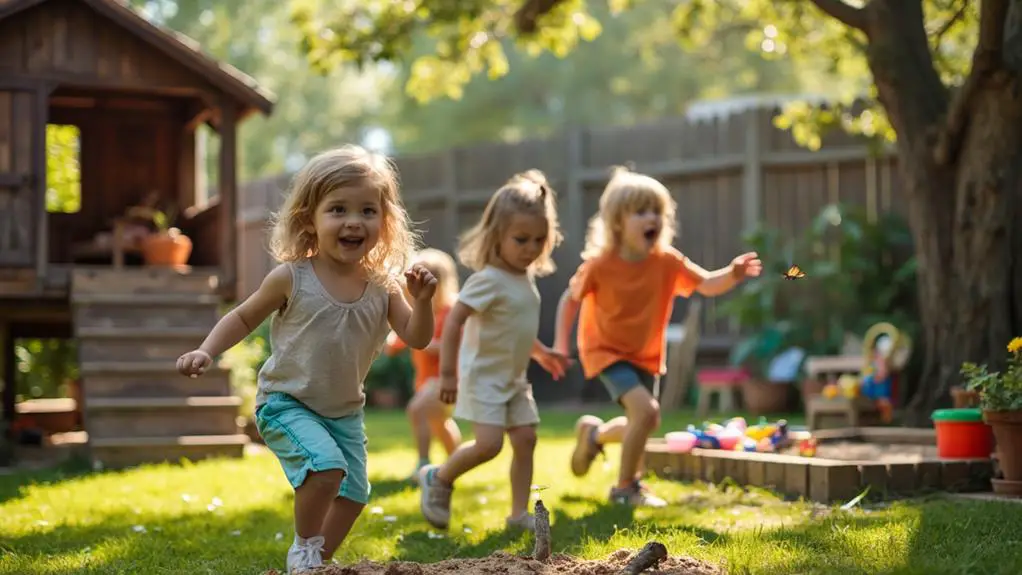
Unstructured playtime serves as an essential counterbalance to the increasingly structured lives of children today.
I've observed that when children engage in unstructured play, they're free to explore new ideas and interests without specific goals. This spontaneous play fosters creativity and problem-solving skills, allowing kids to think independently and tackle challenges on their own terms.
I've found that unstructured play is vital for children's health, particularly their emotional development. It provides opportunities to practice self-regulation and build resilience.
Through independent exploration, children learn to negotiate and cooperate with peers, enhancing their social skills and emotional intelligence. As they navigate various social dynamics in a low-pressure environment, they develop valuable conflict resolution abilities.
In our fast-paced world, I believe it's more important than ever to prioritize unstructured playtime for children's overall well-being and growth.
Engaging in Play
A playground of possibilities opens up when children engage in play. I've observed how this simple act fosters curiosity and enhances cognitive development. As kids explore their environment, they're constantly problem-solving and experimenting.
It's fascinating to see how play promotes social skills, teaching children to communicate and cooperate with peers. I've noticed that imaginative activities allow kids to express emotions and develop creativity, which is vital for emotional regulation.
Physical play is equally important, contributing to motor skills and overall health. It's a natural way to combat childhood obesity and promote fitness.
What's more, unstructured playtime encourages independence and self-directed learning. Children learn to pursue their interests and negotiate with peers, developing essential life skills.
Fundamentally, play is a powerful tool for extensive child development.
Conclusion
I've learned that play isn't just fun for kids—it's essential for their growth. Whether it's building blocks or running around, every type of play contributes to a child's development. I'm especially convinced of the value of unstructured playtime. It's where kids learn to be creative, solve problems, and handle emotions. As a parent or caregiver, I'll make sure to prioritize play, knowing it's setting the foundation for a child's future success.



